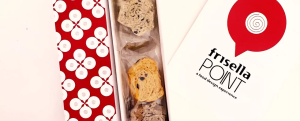
Only the tip of the iceberg of a feverish activity: how has the editorial line of Squilibri changed over time?
Our intent has never been to confine ourselves to the fence of an exasperated specialization but to investigate and document everything that revolves around the music of oral tradition: reinterpretations of popular repertoires, artistic proposals nourished by significant references to the roots but also more concrete attempts to revitalize, in some territories, the repertoires and forms of expression in decline. From this arises the publication, for example, of authors such as Otello Profazio and animation initiatives, such as seminars and reviews. In reality, albeit confusingly, we continued to move around that paradigm that encompasses everything we do but which has been clarified from project to project also thanks to the meeting with some authors.
That paradigm underlies orality in a broad sense. Who were the authors who helped you focus on it?Thanks to the advent of digital, this paradigm is experiencing a new and bursting season, after centuries of oblivion determined by the undisputed domination of a civilization of writing. A paradigm that includes, by definition, not only the music of oral tradition but also the so-called “oral history”, to which we would like to dedicate even more space following the meeting with Alessandro Portelli and his masterful works on memory and, more generally, with the collections and funds that the Circolo Gianni Bosio keeps in the Franco Coggiola Archive. A paradigm, that of orality, around which Lello Voce’s bet is also played in wanting to return poetry to its origins, when it was an oral discipline, based on rhythm and musicality, unthinkable without the embrace of a community. “Canzoniere”, with the co-direction of Gabriele Frasca and Frank Nemola; I believe that this is the only series that combines poetry and music in all of Europe and it seemed right to dedicate a review, “Canzoniere: poetry returns to the scene”, now in its third edition. At first glance, the space granted to the author’s song does not seem to me to be traced back to this aforementioned paradigm, yet it has conquered it.Perhaps not in a linear way but the song also finds its maximum expression, if not its very reason for being, in the performative moment, when an artistic proposal becomes an element of communion and sharing. Without detracting from the fundamental work of those who work hard on a staff, pouring the fruits of their inventiveness on the written sheet, even the songs, especially the “beautiful songs”, hover in the air, pass quickly from mouth to mouth and feed repropositions always variable as happens precisely in oral cultures. After all, from Peppe Voltarelli to Canio Loguercio up to Enzo Moscato, we are interested above all in a type of songwriting, the one that without much nostalgia and no philological anxiety looks at a tradition, even reduced to an echo, and unravels in the folds of a memory, both personal and collective. How and when did you think of founding a publishing house linked to popular culture?It all started very casually, among other things right in Calabria, and on the fringes of the activities of the cultural association Altrosud which I believe did excellent things even in those latitudes, including SilaInfesta, a festival that had established itself as an important appointment in the national agenda, and the Popular Music Documentation Center built in Camigliatello and a harbinger of other important projects carried out outside the region such as the “Network of Sound Archives of Oral Traditional Music”, active in six regions and with its headquarters at the Library National of Rome, and the “Documentary Archive on the origins of the Neapolitan song”, based at the National Library of Naples. As an association we had also started to publish books and CDs but we stopped immediately in the awareness that, to give continuity to this activity, we would have to free ourselves from the relationship with politics, to which an association is instead obliged. Hence the start of an entrepreneurial activity with the creation of a brand, Squilibri, based in Rome and completely independent from the Altrosud association, which maintains its registered office in Calabria. A necessary step to launch a project in absolute freedom that now only has the obligation to seek the consent of the readers, without having to wait for the decision-making times of politics or bow to the worn out liturgies that accompany the granting of a contribution, not to mention of much more deleterious dynamics that have pushed us out of the region. The relationship is therefore closed with Calabria, to which, due to its origins, Squilibri has also dedicated numerous works, from the overview of the oral tradition music of our region, by Antonello Ricci and Roberta Tucci, to the recognition of dance in the greek Calabria by Ettore Castagna, from the volume on the bagpipes of Aspromonte to that on the drums of Sila?No. We would very much like to return to operate in the region, also in consideration of the many excellent initiatives that are being carried out there such as, for example, Armonie d’arte and its programs of great cultural and artistic depth. We are working on a project that can, firstly, highlight the component of theoretical reflection and elaboration that accompanies music, and, secondly, it does not end in the re-proposition of some spectacular event but has a continuity of action, addressed in particular to the world of school, developing over several months. A project promoted in agreement with Club Tenco and Cose di Amilcare and the collaboration of most of the sector magazines and numerous Italian universities, which stands out as being of great originality and without national feedback. The meeting with politics or, better said, the institutions will be decisive, but we are confident that, after a five-year hiatus, something can also be done in our territory. Returning to the editorial activity of Squilibri, I imagine that for a publisher, publications represent as many children, and therefore it is impossible to rank or establish preferences: could you however tell us what is the dream that sooner or later you would like to see published as Squilibri?We would very much like to proceed with the systematic publication of the works that a genius like Roberto De Simone has created over the years without worrying about fixing their memory for future generations in print or on film. Like all geniuses, De Simone has a generously dissipative and inventive disposition that does not always reconcile with the conservative attitudes of an “ant” that instead a small publisher can make his own so that so much beauty is known and spread. As a producer / publisher, have you ever had the impression of representing the “background” that welcomes or rather against which the figure of a musician stands out?A publisher aware of his work must necessarily assume a discreet position and put himself at the service of the authors / artists he publishes, even accepting to constitute himself as a background against which individual paths stand out. Supporting him must be the conviction that each artist or author, in turn, forms the piece of a mosaic that helps to outline an identity and, therefore, to define the role of the publisher and to reveal his ambitions. What do you listen to outside of the music you publish? Do you think of an artist (absolutely, I mean also outside of your professional career), who has not achieved the success he deserved despite the talent possessed?I confess that, to keep up with the many lives that I carry around, I have little time to listen to anything other than what we publish. Whenever I happen to navigate in today’s mare magnum of musical publications, I often come across works of great originality and depth, sometimes authentic masterpieces, and every time I have to note, with bitterness, that they do not have the success they deserve. A name? Flavio Giurato but he is only the last one I came across and the recurrence of cases like his speaks volumes about the depressing state of the discography today.













